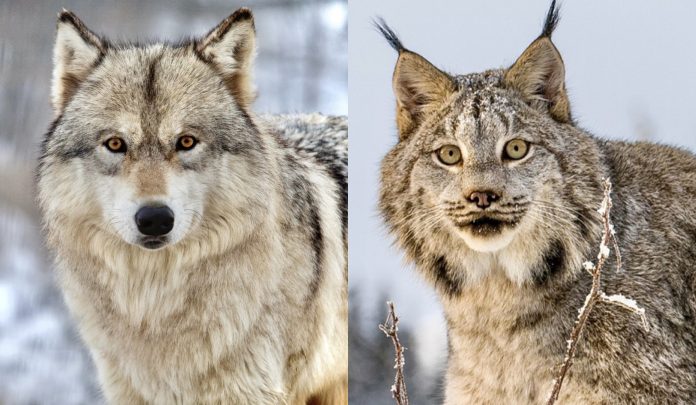
New Lawsuit Challenges Montana’s Horrific Wolf Trapping Program That May Also Harm Threatened Canadian Lynx
By WAN
Today’s notice was sent on behalf of the Center for Biological Diversity and Trap Free Montana.
You can help all animals and our planet by choosing compassion on your plate and in your glass. #GoVeg
RELATED ARTICLES
Banning Cruelty: New Legislation Aims To Ban Octopus Farming In The U.S.
New bipartisan legislation has just been introduced in the U.S. to ban commercial octopus farming and prohibit imports of farmed octopus from foreign countries.
The...
Outrage In Yellowstone! Grizzly Bear Killed By Wildlife Officials & Left With Head & Paws Cut Off
Photo by: Trisha McFarland / Cowboy State Daily
A photo of a dead grizzly bear with its head and paws cut off has caused an...
Inside Florida’s Illegal Horse Meat Trade: Undercover Footage Shows Racehorse Being Shot & Butchered
A heart-wrenching discovery of illegal horse slaughter has emerged, with video footage exposing the tragic killing of a racehorse named 'Funny Biz,' who was...
Popular stories
News
Breaking! Rhino Poaching Kingpin Petros Sydney Mabuza “Mr. Big” Was Shot & Killed In South Africa
Photo credit: Saving The Wild
Alleged rhino poaching kingpin, Petros Sydney Mabuza, known as “Mr. Big,” was reportedly killed this afternoon after his truck was shot...
News
Victory! Sinaloa Becomes The Fifth State In Mexico To Ban Cruel & Archaic Bullfighting
Animal activists rejoice as the Congress of Sinaloa unanimously approved an initiative that bans bullfighting in the state, classifying it as animal cruelty.
Sinaloa now...
News
Victory! Because Of Thousands Who Spoke Up, Commission Votes 5-0 To Protect Mountain Lions Under California’s Endangered Species Act
In response to a petition from the Center for Biological Diversity and the Mountain Lion Foundation, the California Fish and Game Commission voted 5-0...


